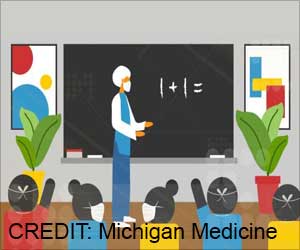
Building a positive reputation by helping others often leads to reciprocal rewards, known as indirect reciprocity.
However, for cooperation to be effective on a larger scale, everyone must agree on what reputations are and how they are formed.
A recent study by professors Joshua B. Plotkin and Corina Tarnita from Princeton University examined how people judge each other’s reputations, especially in the age of social media. The study was published in Nature (1✔ ✔Trusted Source
The evolution of private reputations in information-abundant landscapes
).
Traditionally, reputations were considered good or bad based on a single action. However, Sebastián Michel-Mata, a PhD student in Tarnita’s lab, and his team propose a more multifaceted approach.
‘Look Twice, Forgive Once’ Principle
The concept of “Look Twice, Forgive Once” suggests that we must consider multiple actions, instead of judging someone based on a single action.
By forgiving occasional missteps and focusing on overall behavior, people can maintain cooperation even in the absence of strict rules or organizations.
Reputation and Reciprocity: What We Learn from Others
By using a game to observe how people change their opinions about others based on their actions, the researchers found that witnessing at least one good action increases the likelihood of reciprocating help.
Advertisement
Interestingly, evaluating more than two actions did not significantly enhance cooperation, indicating that too much information can sometimes be ineffective.
Researchers believe that people have been using this simple method of judgment for a long time and plan to expand their studies to different settings, such as schools and homes, to gain a better understanding of how individual actions affect public opinions.
Advertisement
Understanding and applying the “Look Twice, Forgive Once” principle can greatly influence how we develop and uphold our reputations. This approach not only promotes cooperation but also contributes to the creation of a peaceful and cooperative society.
Reference:
- The evolution of private reputations in information-abundant landscapes- (https:www.nature.com/articles/s41586-024-07977-x)
Source-Medindia



